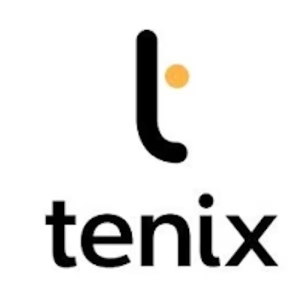As bus and truck companies shift to electric vehicles (EVs) for a more sustainable transport system, they may encounter several challenges. However, with the right tools and strategies, these obstacles can be effectively managed. Here’s how Tenix can help facilitate a smoother transition for both bus and truck fleets.
Key Challenges and Tenix Solutions
- Limited Range: Electric buses and trucks often have a shorter range compared to traditional fuel vehicles, particularly in hilly terrains. Tenix Fleet provides comprehensive vehicle data that helps operators assess routes and optimise charging schedules, ensuring that both buses and trucks have adequate power for their journeys.
- Weather Dependency: Harsh weather can impact battery performance. By leveraging data insights from Tenix Charge, fleet operators can prepare for seasonal variations and adjust charging strategies accordingly, ensuring vehicles are fully charged when needed.
- Complex Charging Infrastructure: Setting up a reliable charging infrastructure is crucial for both buses and trucks. Tenix Charge offers a complete charging management system that simplifies the operation of electric fleets, allowing for seamless integration of charging stations and efficient energy management.
- Extended Charging Times: Charging electric vehicles can take significantly longer than refueling traditional ones. With Tenix Charge, operators can schedule charging during off-peak hours or when vehicles are not in service, minimising disruptions to operations.
- High Initial Costs: While electric buses and trucks come with higher upfront costs, they offer long-term savings. Tenix’s solutions can provide insights into operational efficiencies and cost savings, helping companies view the investment as a strategic move towards sustainability.
- Spare Parts and Maintenance: The availability of spare parts for electric vehicles can be limited. Tenix Maintenance offers an independent online system for vehicle management that streamlines maintenance processes, ensuring that both buses and trucks are serviced quickly and efficiently with the right components.
- Training and Expertise: Transitioning to electric vehicles requires retraining for staff. Tenix can assist in developing training programs that equip drivers and maintenance teams with the knowledge needed to operate and maintain electric buses and trucks effectively.
- Energy Demand Management: Charging multiple vehicles simultaneously can strain the electrical grid. Tenix Charge helps monitor energy demand and coordinates charging schedules to avoid overloading, ensuring efficient use of grid resources.
- Route Planning Optimisation: Electric buses and trucks may require re-evaluation of existing routes. Using data analytics from Tenix Fleet, companies can optimise routes based on battery performance and charging needs, ensuring operational efficiency.
- Charging Reliability: Reliable charging infrastructure is essential for smooth operations. Tenix Charge provides real-time monitoring of charging stations, allowing operators to anticipate maintenance needs and avoid service disruptions.
Conclusion: A Greener Future with Tenix
Transitioning to electric bus and truck fleets comes with its challenges, but Tenix’s innovative solutions empower fleet operators to overcome these obstacles successfully. By leveraging Tenix Fleet and Tenix Charge, companies can improve operational efficiency, reduce costs, and significantly contribute to a cleaner, more sustainable transport system.
- At Least 63% Lower Lifetime Emissions: According to the International Council on Clean Transportation (ICCT), battery electric buses produce at least 63% lower lifetime greenhouse gas emissions compared to diesel buses, even with the current European electricity grid mix.
- Noise Pollution Reduction: Implementing electric buses in urban areas can decrease traffic noise by up to 4.4 decibels (dBA) during the daytime in city centers.
Embrace the future of transportation with Tenix Products and lead your fleet towards sustainability.


